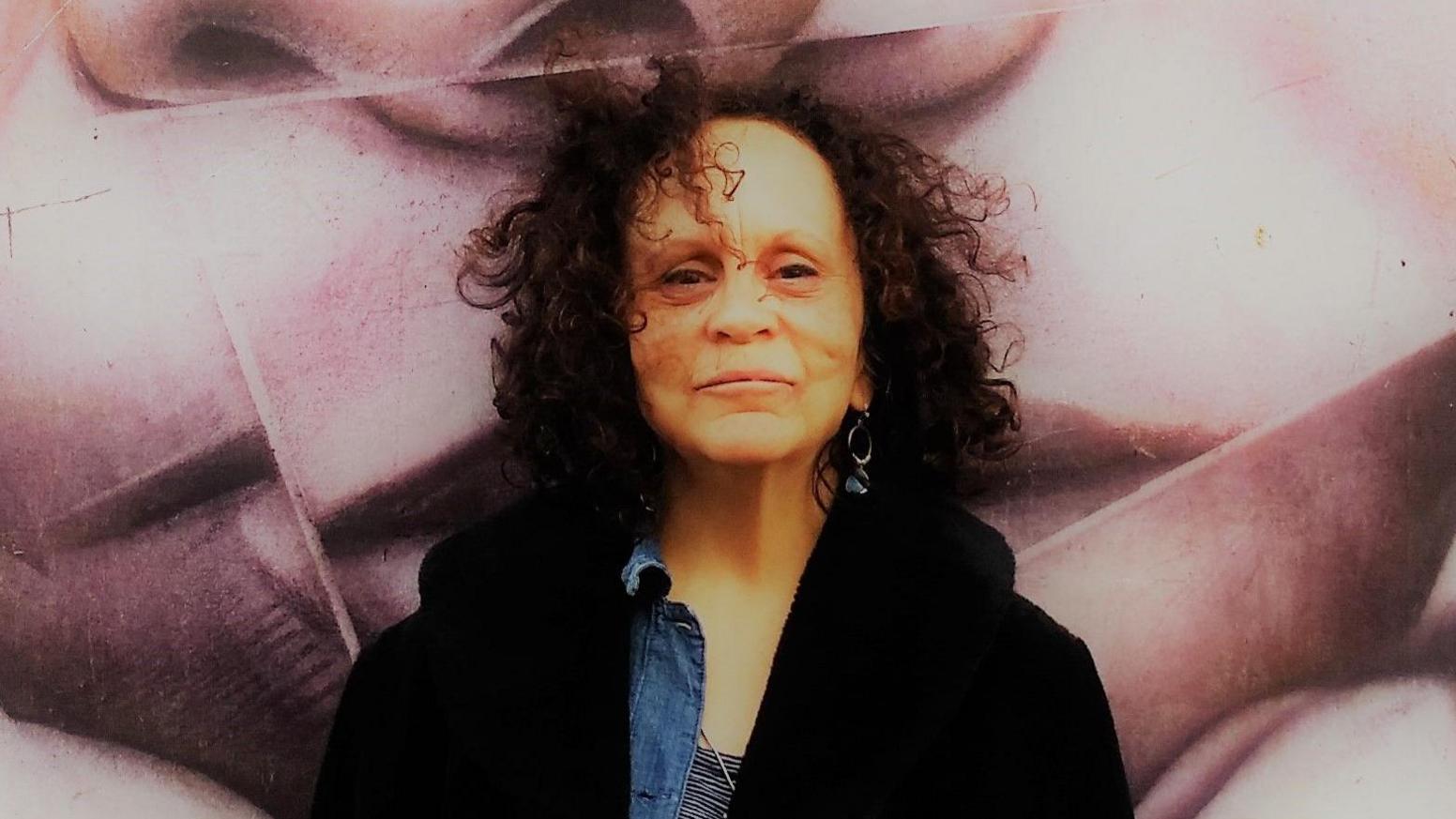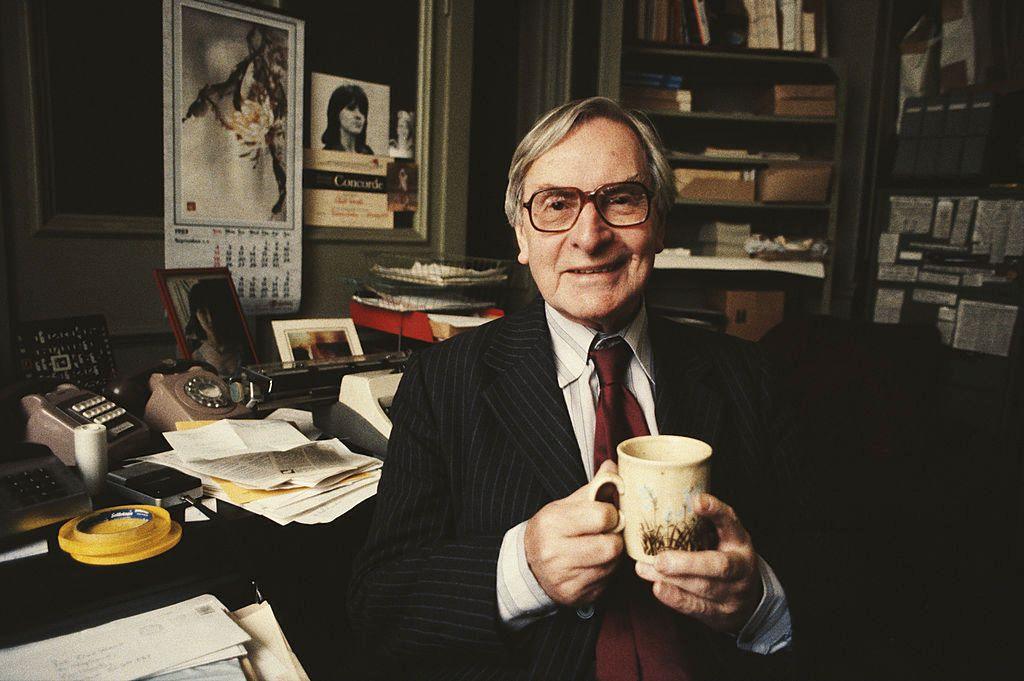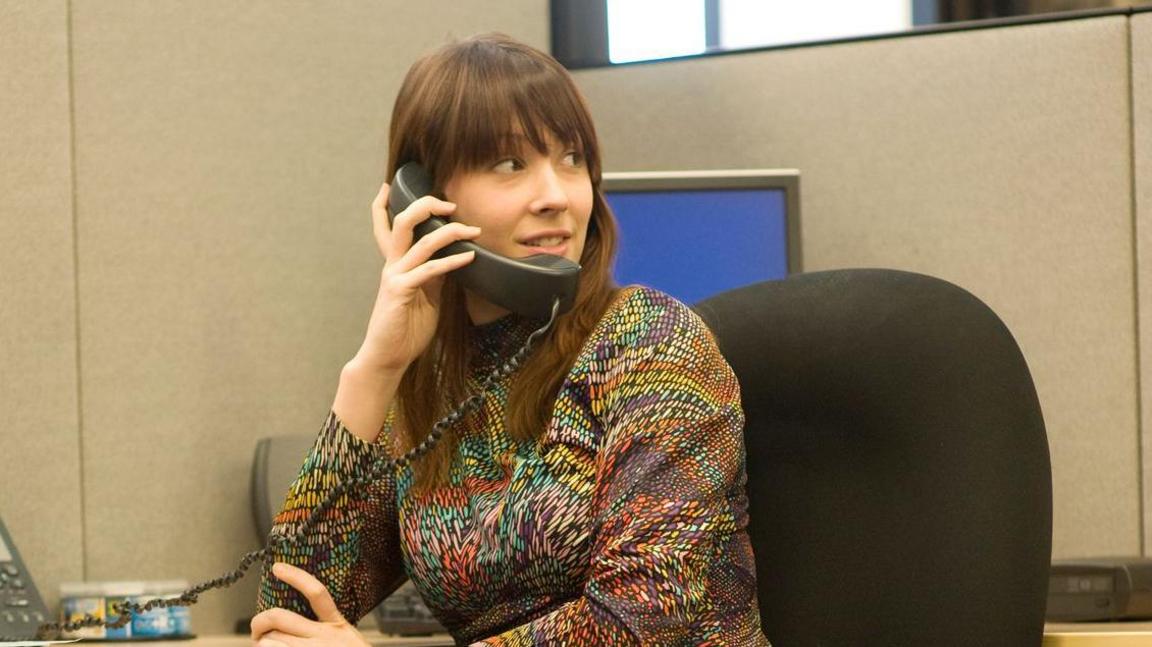The unsung 'Brendas' who answered obscene helpline calls

Karen Theilade was just 20 when she heard her first "Brenda call" at the Samaritans
- Published
The Samaritans helpline has been saving lives since 1953.
Set up by an Anglican vicar, Edward “Chad” Varah, it provided an emergency number – similar to 999 – for anyone contemplating suicide.
The premise was simple but groundbreaking. Callers could speak anonymously to volunteers who would listen without judgement.
Although their main focus was on reducing the feelings of isolation and disconnection which often lead to suicide, volunteers had to deal with a range of issues.
But the founding principle that no-one should be turned away led to the establishment of a peculiar period in the charity’s history - the Brenda Line.
“The Brenda Line was set up in 1958 to deal with the growing number of obscene calls being received,” says Edinburgh-based writer Harry Mould.
“Initially the calls had been put through to the Brent branch of the Samaritans, so that became synonymous with obscene calls which the volunteers objected to.
"They adapted it into a woman’s name, because it was normally men who were calling, and women they wanted to speak to.
"And it meant these calls didn’t go unanswered - they went to women who consented to receive them.”

The Samaritans was set up by Anglican vicar Edward “Chad” Varah in 1953 to help people thinking about taking their own lives
The line was contentious from the start.
“Brendas” were given a manual which helped them identify the kind of caller and the way to deal with it. Varah - a trained sex therapist - wanted volunteers to identify which callers were “befriendable” and could be helped, and which could not.
The manual identified a range of callers, from young boys calling as a joke, to older men who were afraid of women and unable to make relationships with them.
Harry first heard about the scheme from her mother Karen Theilade who saw the system at work on her first day as a Samaritan volunteer in Wales in 1980.
“I was just 20 years old, and I remember my first night shift,” said Karen.
“The woman I was with was a lot older than me, maybe 60s or 70s. I’d worked a number of day shifts already but because I was still a trainee, I was listening in to her call. And the first thing he said to her was “what are you wearing?”

"Brendas" offered to speak to obscene callers to make sure no call went unanswered
She added: “She was very matter of fact. She didn’t try to shut the conversation down, she just said 'It’s been a very hot day'.”
Karen says she had taken a few calls before of a sexual nature but was shocked to hear an older woman taking the calls.
“At that age, we’re all hyper-sensitive, especially in front of older people, but she accepted and listened with kindness.”
“She didn’t encourage or facilitate the caller. She simply answered the question in a somewhat neutral way. Beyond that, her role was to be present and non-judgemental and she definitely fulfilled that.
"But I’ve since learnt that many of the women felt ashamed or embarrassed about it, which I feel sad about."
The Brenda Line was abandoned in 1987.
Many of the volunteers felt the system was encouraging and gratifying callers, rather than helping them.
Chad Varah argued that the calls were just as important as any others although the anonymous nature of the helpline meant he was unable to prove the case.
He died in 2007, after failing in a bid to revive the scheme.
Harry Mould is not convinced the scheme was a success, but she remains fascinated by the Brenda Line and the Brendas who manned it.
“It was a problematic system, whether you were a volunteer or a caller,” she said.
"But empathy was at the centre, a desire to be supportive whether that meant preventing something from happening or making callers feel less alone.
“The important thing is that these women existed and that they did this impossibly difficult, hilarious, terrible, kind thing and they are now all but forgotten."

Writer Harry Mould has brought the "Brendas" to life in a play at Pitlochry Festival Theatre
Now thanks to Harry’s debut play for Pitlochry Festival Theatre, the story is not forgotten. And many of those who remember the Brenda Line may well be in the audience.
“When the show was first announced, the box office received a phone call from a woman who wanted to know if it was the Brenda line from the Samaritans,” said Harry.
"When the box office assistant said cautiously that it was, the woman answered 'excellent, I’m a volunteer for the Samaritans in Croydon and we’ve hired a bus so we can travel up to see the show'."
The Brenda Line is at Pitlochry Festival Theatre from August 15th to September 18th.
If you've been affected by the issues in this story, help and support is available via the BBC Action Line